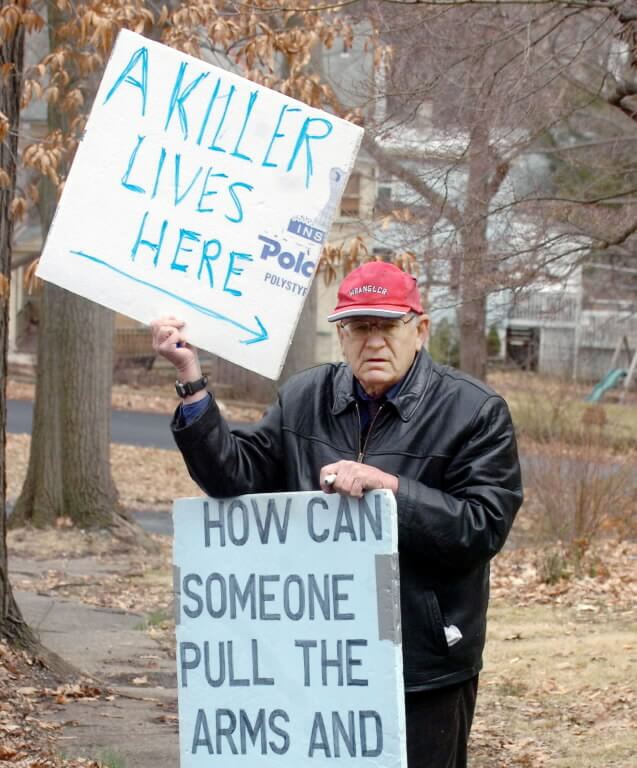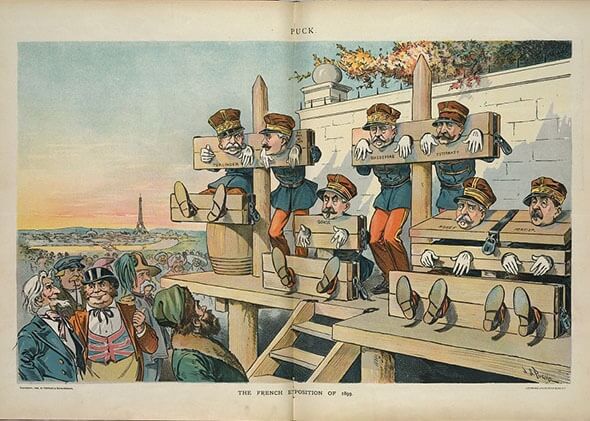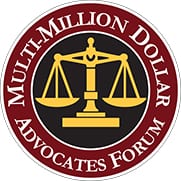This is a fact!
Doxing can refer to a broad array of conduct, but its essence is publishing private information about a person, such as home address, employment location, cell phone numbers, etc, usually out of a sense of revenge or social justice. The term comes from the abbreviation “docs” (for “documents”) and refers to compiling and releasing a dossier of personal information on someone.

Image Source: abcnews.com
Usually doxing is done so that the target suffers negative consequences ranging from from public shame or being fired from a job to suffering a physical attack from an angry member of the public. For example, one Twitter user went on a mission to dox those who attended the “Unite the Right” rally in Charlottesville, VA. One of his targets was fired from his job. Another was disowned by his family.
In the early days of the Internet in the 1990s, anti-abortion activists published abortion providers’ home addresses, phone numbers, and photographs, and posted them as a hit list. The website included blood-dripping graphics, celebrated providers’ deaths and incited others to kill or injure the remaining providers on the list. Between 1993 and 2016, eight abortion providers were killed by anti-abortion terrorists.

Image Source: abortion.ws
Most recently, a House of Representatives intern was arrested this week for publishing private information about South Carolina Republican Sen. Lindsey Graham and Utah Sen. Orrin Hatch. Information including home addresses, private cell phone numbers and more was reportedly added to the Senators’ Wikipedia pages.
The intern has initially been charged with 18 USC § 119 Making Public Restricted Personal Information. However, this federal law only applies to narrow categories of individuals, including:
- any officer or employee of the United States or of any agency in any branch of the United States Government (including any member of the uniformed services);
- jurors, witnesses, or other officer in or of, any court;
- informants or witnesses in a Federal criminal investigation or prosecution;
- a State or local officer or employee whose restricted personal information is made publicly available because of the participation in, or assistance provided to, a Federal criminal investigation by that officer or employee;
However, if you don’t fall into one of the above categories, there is no federal law that criminalizes all of the conduct that may be called doxing, such as publishing someone’s contact information. However, there is a federal law against stalking that may apply to many doxing incidents. 18 U.S. Code § 2261A provides:
“Whoever—
(2) with the intent to kill, injure, harass, intimidate, or place under surveillance with intent to kill, injure, harass, or intimidate another person, uses the mail, any interactive computer service or electronic communication service or electronic communication system of interstate commerce, or any other facility of interstate or foreign commerce to engage in a course of conduct that—
(A) places that person in reasonable fear of the death of or serious bodily injury to a person …; or
(B) causes, attempts to cause, or would be reasonably expected to cause substantial emotional distress to a person …shall be punished as provided in section 2261(b) of this title.”
Image Source: slate.com
Most victims of doxing should also look to their state law. Much of the conduct that is considered “doxing” may fall under multiple state laws relating to cyber stalking, stalking, harassment, threats, or extortion (e.g., threatening to make information public if money is not paid). A doxer can also be charged if he illegally obtained the data about his victim, such as from protected government databases.
If government authorities are not willing to pursue prosecution, victims of doxing always have the option of filing a civil suit if they can locate the doxer, which can be extremely difficult. What is a civil suit again? In the US, the most common example of a civil suit is the lawsuit that is filed after a car accident, when the injured party believes they were effected by the negligence or malice of another. Successful civil suits usually result in the award of compensatory damages, and possibly punitive damages. A civil suit can be filed even if no crime has been committed.
What do you think? Should Congress enact a federal law that addresses doxing? Or should there be a right to release public information about other people with the intent to humiliate or cause financial loss or even bodily harm via third parties?











I had a guy find out where I work for a school on youtube , a bunch of folks that call themselves the Troll Of The Round Table. They contacted the school and told them all kinds of horrible things about me . My daughter in 3 grade also goes to this school. It is summer now and I am horrified what kind of things they think when school starts up again in sept. This doxxer even went on another youtube channel bragging about it. He of course uses an anonymous name Jeremy Hopper and the the avatar from the guy from the Matrix Movie. He also claims to work for the DOD and has special skills and tools that nobody else has.
if im not mistaken, impersonating a government official is a felony, you may be able to have the prosecuted, take screenshots of everything
I know someone who has been an online cyberstalker and uses almost those same words.
‘I have a unique set of skills..’
This guy repeats phrases a lot.
He tries to intimidate and doxx people. Often us8ng third parties.
And, I forgot, he runs a ‘bot’ company. Has laughed at Twitter, saying their API is all he needs.
He has also made mention of foreign nationals.
Why he chooses to bother unimportant people, such as a Twitter group, is due to the fact that he gets paid by someone for results.
He also begs for donations and has been accused of crypto fraud.
Location:NY.
I can me much more specific if needed.
I am not saying this man is guilty, just that your story sounds very familiar
So what about Senator Joaquin Castro doxing all the information and names of Trump donors in San Antonio? Protestors are already harassing people on their private property.
Cry about it, Susan.
That’s not doxxing. That’s publicly available information.
They deserve to be shamed for their shameful actions.
So then you agree that doxxing should be legal. Wow a democrat who feels this way. Bravo
They didn’t say doxxing should be legal. They said that isn’t doxxing because it’s public information. Nice try.
IOn the subject of doxxing, or other organized efforts to financially distress or ruin a private individual through social media, blogging or other means, I find no difference in the intent of these activities than if a group donned balaclavas and wielded clubs to personally injure someone. Both acts are malicious and carried out with the full intent to injure someone. Both acts should be addressed through both the criminal code to mete out justice and punishment of the perpetrators and common law, civil court should address compensation and damages to the victim. Without these avenues, the victim will likely have to resort to their own form of retribution and without financial power, the victim might resort to physical force to fight back.
Congress definitely needs to enact a federal law that not only addresses doxxing, but also bans doxxing, because doxxing is illegal and bad. We don’t care if some people don’t like each other, it is still illegal to dox someone and anyone who does such acts should go to prison.
Are voluntary public statements exempt from “doxxing” laws? For example:
a) Klark K. Klan has a public social media profile and lists his place of employment.
b) Klark K. Klan makes racist statements, threats of violence, incites murder, etc.
c) Someone witnesses Klark K. Klan’s public statements and informs his employer or reposts the voluntary statements elsewhere.
How would a, b, and c constitute doxxing when there is no violation of privacy, when racist or violent individuals made those statements voluntarily?
None of that is doxxing in the first place. Simple.
Doxxing is specifically making private information public that is not already public and was not supposed to be public.
Using public information that is meant to be public and posted by the owner themselves is not doxxing.
Giving someone’s personal phone number out to all of their haters is only doxxing if that was private information that was never supposed to be public.
However, if the person has their personal phone number publicly available and visible on every single social media for example, then using that publicly available info is not doxxing.
People who do such things like doxing are cowards. They go to social media and post things on other outlets to incite a reaction because they don’t have the gumption to confront it themselves. They are deserving of jail time. If you have a problem with someone, learn to have a serious and respectful conversation with that person. Going after them in a passive-aggressive manner solves nothing.
You are pathetic. The coward is those who can’t take the consequences of their actions. Also, yjis is free speech.
I’d argue an even bigger coward is the one throwing rocks, not stones, in their glass house, “Anon”.
My position on this is that doxxing usually doesn’t need to be treated distinctly- because it will invariably fall as a criminal conspiracy to commit a violent crime. (e.g. someone says here’s x’s info- go do y to x – is a criminal conspiracy where y is concerned, because posting the info is both an “agreement” to do y AND is a substantial act in furtherance of y.) This is where prosecutors need to wield the heft of conspiracy charges against these sorts of actors- especially since conspiracy can get much more jail time than the principal, in some cases even bringing the death penalty into play.
You’re assuming that there’s always an explicit action that’s called for, when someone doxxes another. What about when a member of a hate group finds out the phone numbers of people who have donated to a pro-life organization? Obviously the purpose of posting the phone number is to hope that someone else in that hate group does something cruel with that information, but they haven’t explicitly suggested that anyone do something with that information. To me, that’s just free speech. We all have the agency to do whatever we want with the information we are given or obtain. Our actions are then scrutinized by the law, but that doesn’t mean that the information was the thing that forced us to take action.
Posting private information to the public without consent is not free speech.
Very interesting conversation. The fact that you referred to releasing “public information” implies that the information has already been released. I would lean towards the use of information for illegal activity is the problem, not the actual release. Otherwise, would not Google be culpable for making all my public information more readily accessible if someone were to use it?
Is it doxing if its the government that’s doing it, especially if it’s under a guise that has been proven to be inaccurate? What if the government doxes an entire segment of the population with the result of causing or attempting to cause, or would be reasonably expected to cause substantial emotional distress to a person?
What if this doxing caused or was proven to cause any person to be in reasonable fear of death or of serious bodily injury?
What if the government knew this doxing would be questioned so this same government proclaims this action to be a civil regulatory scheme not unlike that of renewing ones driver’s license?
What if the general population upon discovering the identity of said segment of the population not only approved but strongly supported this civil regulatory scheme?
What we allow the government to do to one, we demand the government do to us.
Thank you for your time.
***Question for attorneys out there *** In California, regarding doxing, does CCPA 1798.105 – provide a workaround to social media’s Section 230 immunities? As of 3/11/21, Instagram and Twitter have been broadcasting my non-public phone number and street for 8+ months posted by a gang member. Posts are still live, collectively received 2 million + views, and the threats of violence have displaced me from my house 8 months and counting. I sent notarized certified letters requesting Instagram & Twitter remove my phone number and street from their broadcasts to their heads of legal and their CEOs. CA law gives them 45 days to comply according to CCPA subsection 1798.130 and the post office confirms all received these letters. I think there’s a case here. What do you attorneys think? An LAPD investigator is attached as well regarding the threats of violence. Anyone want to take it up, please reply! There’s a proper legal paper trail and believe social media may be forced some accountability here for negligence of privacy laws and damages are meaningful and documented. Some public notariety in this case possible too. Please post if you can help! Thanks all!
Phone numbers are not protected. You don’t understand fundamental law. Think about it. Your private number is sold all the time. When you call someone, they have your number it is no longer private. This is why you can take pictures of people even kids in public. Privacy is an illusion. My god they have info brokers who sell your info online.. classmates.com , spokeo, snd others … they have bots that scrap the web for info.. you peoplr need to google your names.. LOL
Incorrect. Any posting of any private information publicly without consent is doxxing and illegal. Phone numbers included. ANY information.
What if you have been doxed incorrectly? Posting public information is against California law under cyber stalking and especially if it is meant to cause harm. what if it is also false, which is slander and libel?
what if the social media platform where the information is published , who you sent your identification to to prove Who You are, has not taken it down and only responded with restricting the person’s account until THEY take it down? What if they choose to never take it down, are there any repercussions for them?
I was falsely doxed, meaning my name and photos of me were associated with somebody wearing a mask doing something not illegal but publicly shameful.
What can I do?? Please contact me if you can help me.
“Posting public information is against California law under cyber stalking and especially if it is meant to cause harm. what if it is also false, which is slander and libel?”
Incorrect. That’s not doxxing.
Doxxing is specifically making PRIVATE information public that is not already public and is not supposed to be public without consent.
If the information is already public and meant to be public by the owner of said info, then that by very definition, is NOT doxxing.
An example, if I gave someone’s phone number to all of their haters, that is ONLY doxxing if that number is private and not public and not meant to be public.
However, if their personal phone number is something they posted themselves in every single bio of every single social media for example, then using said publicly available info is NOT doxxing!
I am so happy that I found it very useful content
I am very satisfied of this website and I also rate it daily whenever I do and my whole family is also very agree with this website. I like it so much. i am satisfied.
I’m glad to become a visitor in this pure site, regards for this rare info.its stuff is amazing.
this is amazing website.
I live in Tennessee and doxing should absolutely be illegal federally, especially when people dox addresses where minor children live! I’ve been doxxed, which means my child has also been doxxed and it’s scary. That information could fall into the wrong hands and someone could end up hurt or worse! The online harassment/bullying, calling people’s jobs and family members, swatting people, calling in 5150s on people just because you don’t like someone, etc…. has to STOP or it’s only going to get worse! MAKE DOXING A FEDERAL OFFENSE!!!!